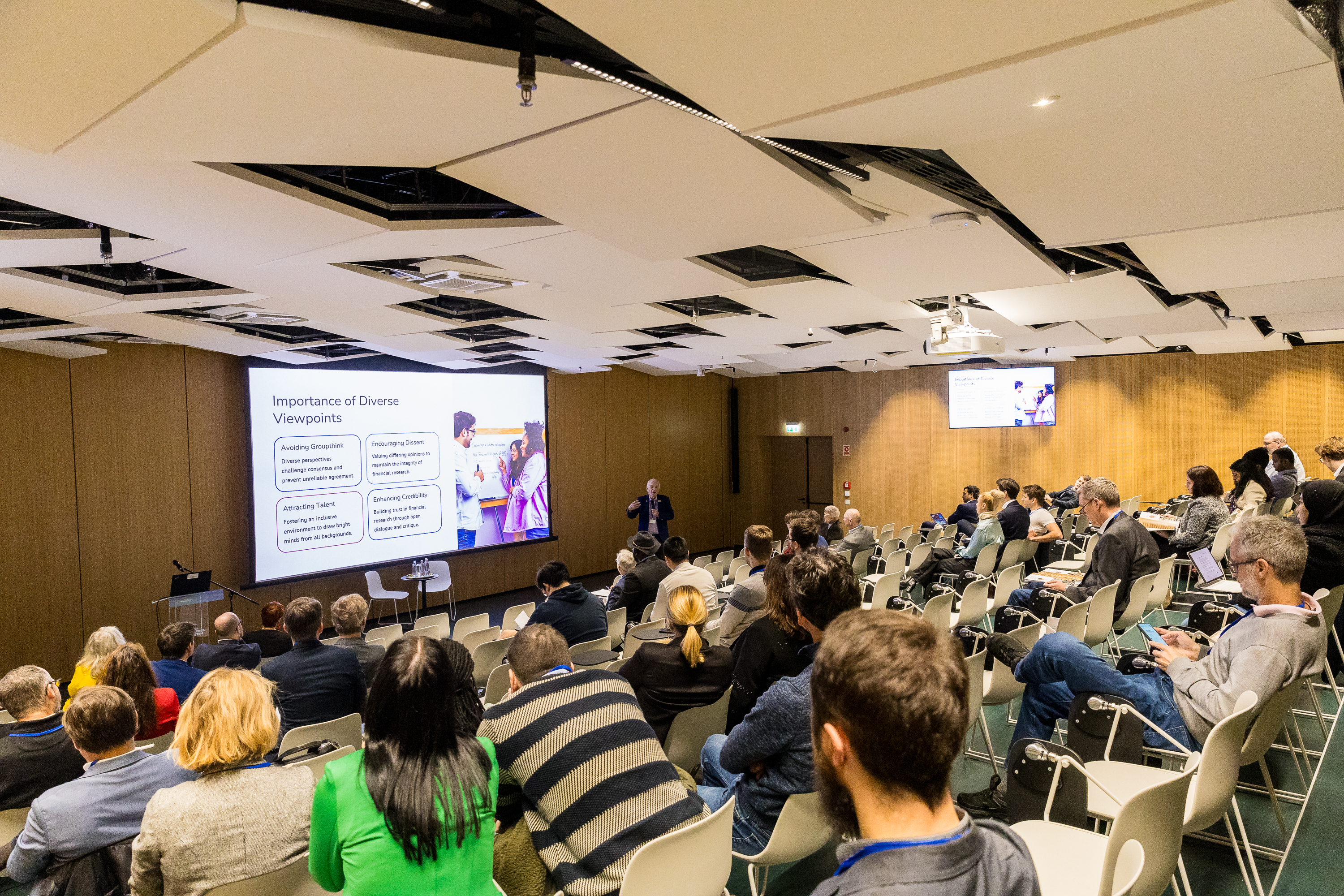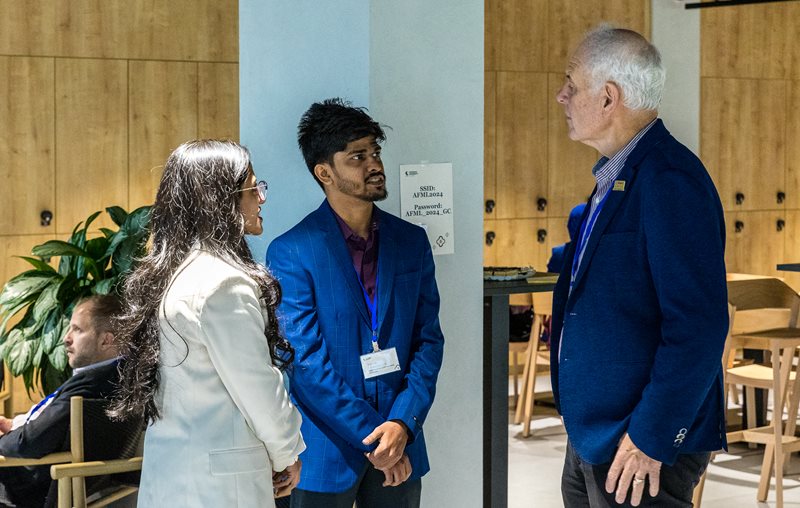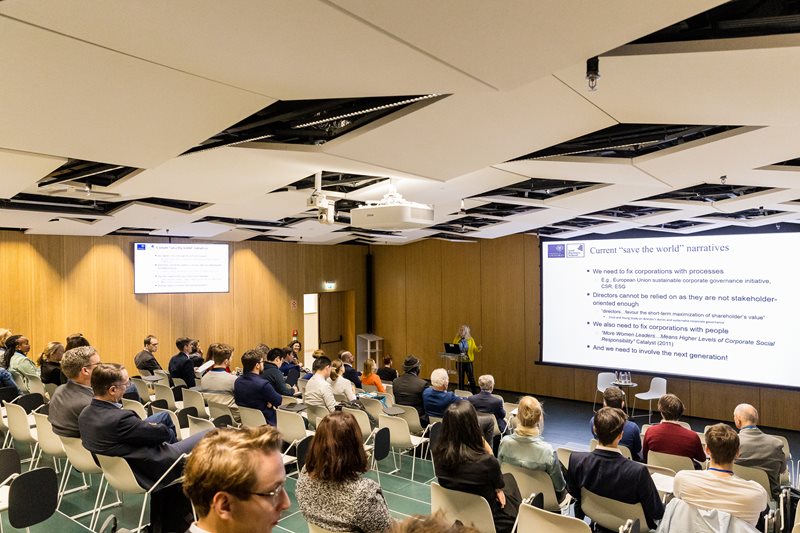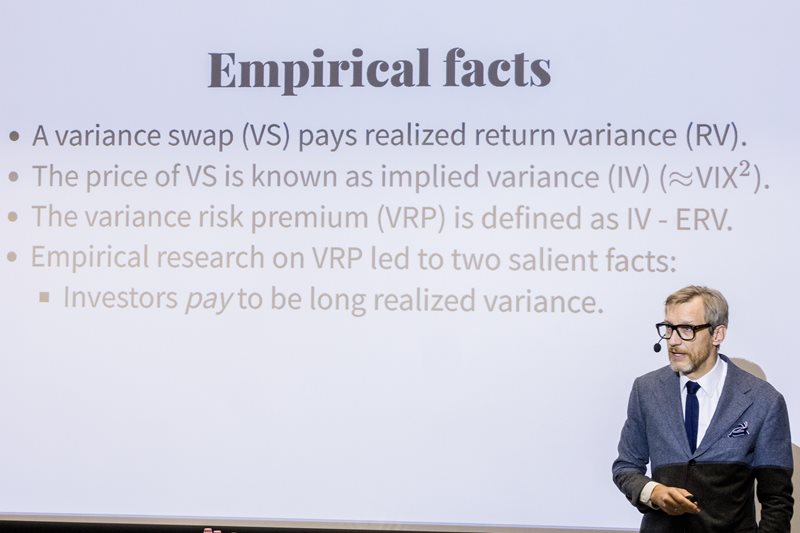Corvinus University of Budapest hosts cutting-edge finance conference with global experts

In a time when global financial challenges often feel threatening, University of Oxford professor Renée B. Adams sparked a compelling question: “How to save the world?” She was one of the keynote speakers at the 15th Annual Financial Market Liquidity (AFML) Conference, held on November 14-15, 2024, at Corvinus University of Budapest.
The event, opened by Corvinus Rector, Bruno van Pottelsberghe, brought together over 100 leading experts from academia and industry to address the issues in the broad field of financial market liquidity with current societal implications. In the opening speech, Professor Adams encouraged attendees to rethink the role of stakeholders in shaping the future and highlighted the importance of educating critical thinkers to guide informed policymaking toward a more equitable and sustainable world.

Organized by the Institute of Finance, Corvinus University of Budapest in partnership with the Game Theory Research Group, HUN-REN Centre for Economic and Regional Studies, ESSEC Business School (France), and Eötvös Loránd University (ELTE), the conference featured a robust lineup of keynote presentations. Renowned scholars like Robert Faff, from the University of Queensland (Australia) and Corvinus, presented on responsible finance research, while Jonathan Batten from RMIT University (Australia) explored corporate portfolio management under exchange rate uncertainty.
Other highlights included Albert J. Menkveld’s (Vrije Universiteit Amsterdam, The Netherlands) analysis of pricing variance in a model with fire sales, Thomas Walker’s (Concordia University, Canada) exploration of local governments’ preparedness for natural disasters, and Rose Liao’s (Rutgers University, USA) discussion on the impact of labor market regulation shocks on U.S. firms.

The diverse perspectives of these keynote speakers set the stage for an in-depth analysis of the challenges and opportunities facing global financial markets today. Moreover, the conference’s parallel sessions explored other compelling topics like corporate finance, market microstructure, and the role of sustainability in finance. Finally, Lianne van der Zant, a publisher from Elsevier, provided an overview of the landscape of financial publishing.

With participants from five continents, the event offered valuable networking opportunities, fostering collaboration across disciplines. In this sense, the AFML 2024, made possible through the collective efforts of its organizers, sponsors (Morgan Stanley and Keler CCP), and speakers, provided a platform for advancing the study of financial market liquidity and its far-reaching implications.